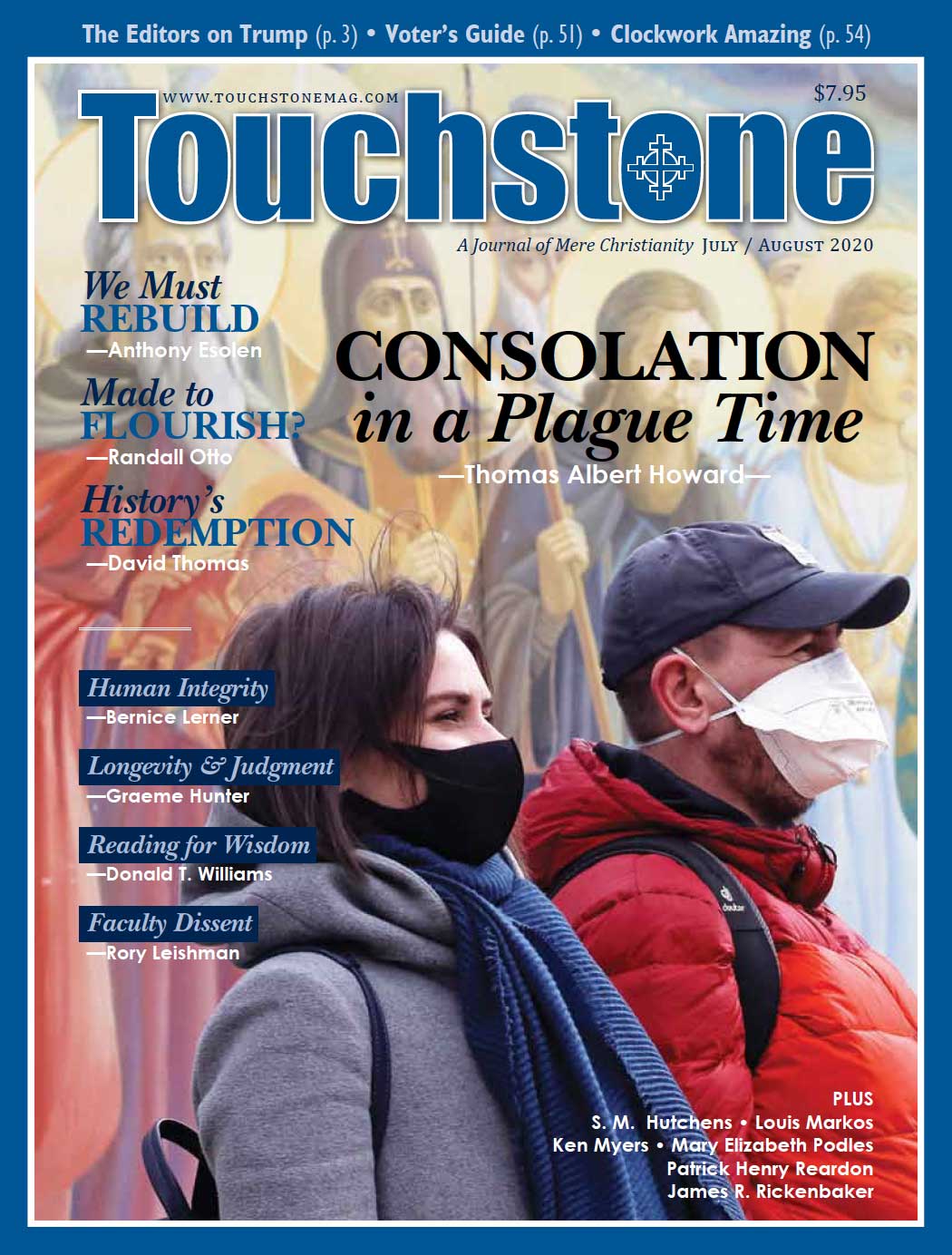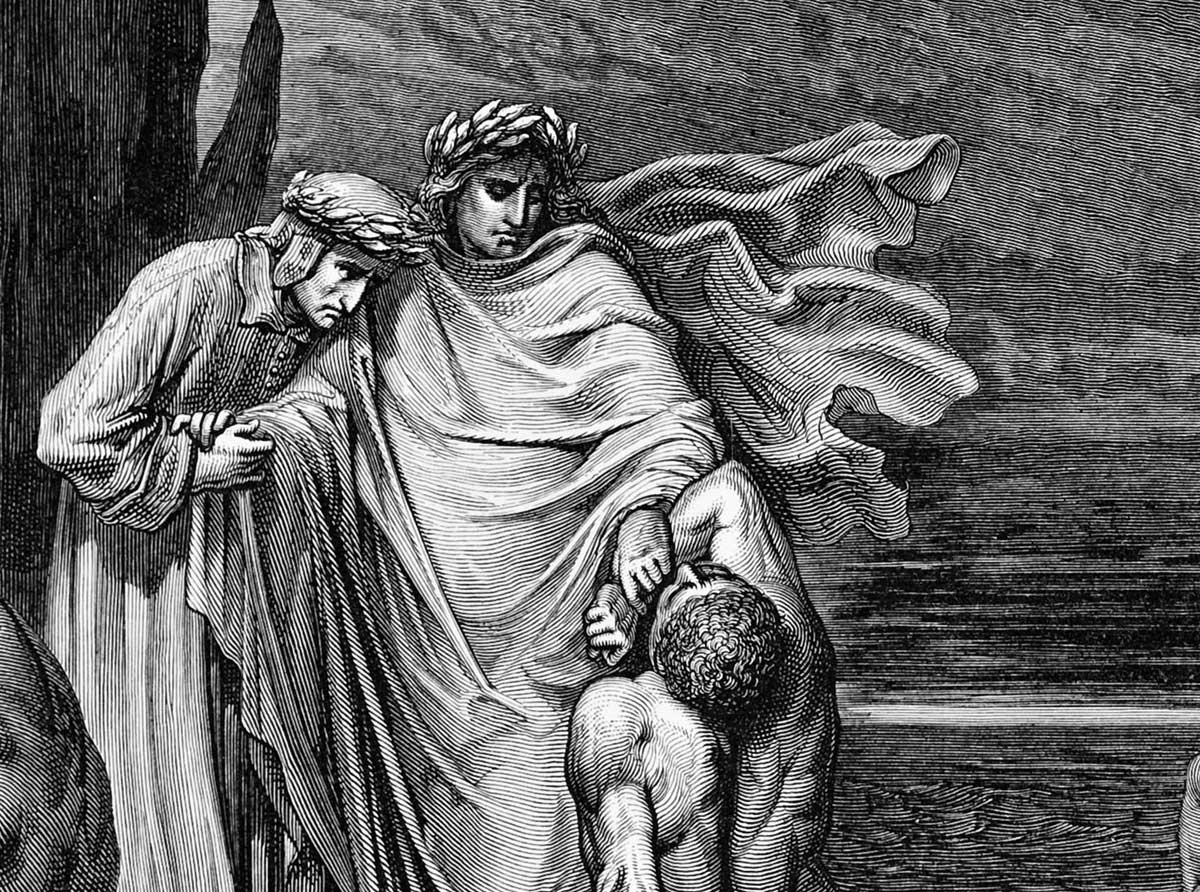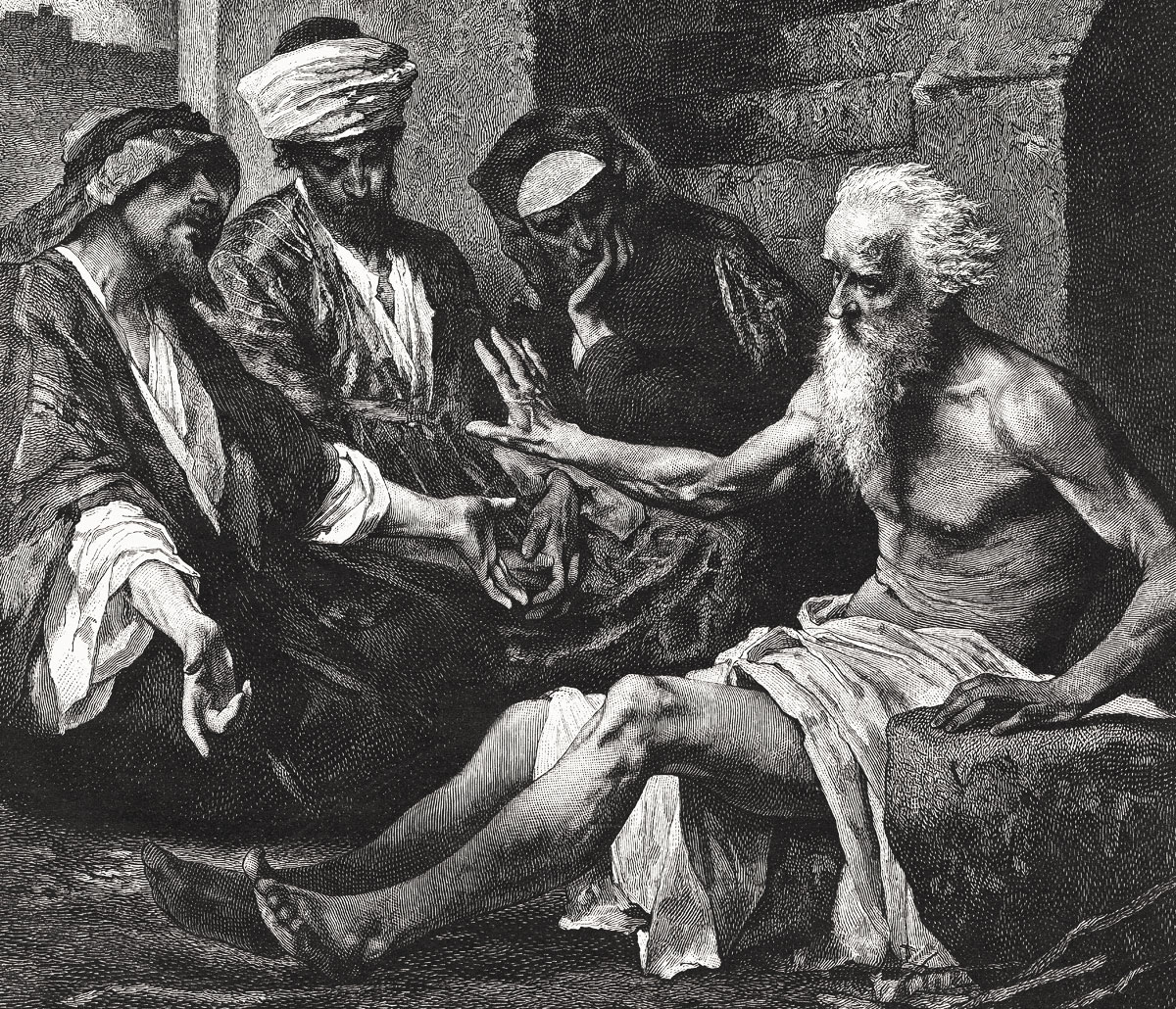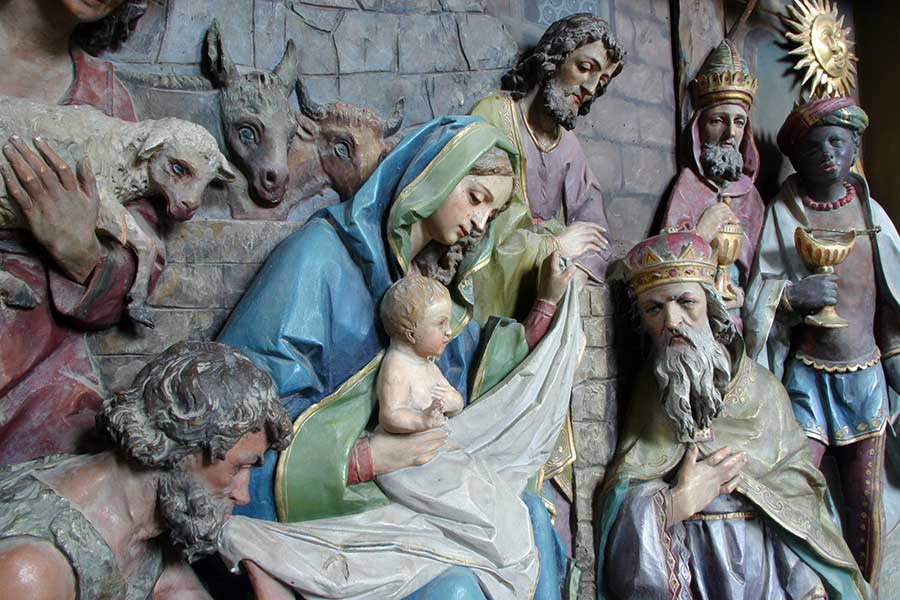View
Literature for Wisdom
Donald T. Williams on Reading in the Service of Christian Living
Can literature serve a life of Christian wisdom? If so, how? For literature outside of Scripture is surely a mixed bag, and some Christians have thought it should be avoided as "lies of the poets."
As a minister of the gospel and college professor who has split his professional life neatly down the middle between the study of theology and of literature, I had better hope that literature can aid us in such a high calling! Theology, I want to say, is the queen of the sciences, and philology is her handmaid. (Yes, I spelled that right. Philosophy is also on the handmaid staff, but because God gave us his revelation in a book, philology, the study of literature from the standpoint of its language, is the head of the staff.) Scripture is, after all, made of literature.
One obstacle we face in this discussion, however, comes from the man we usually regard as the true Christian literary apologete: C. S. Lewis. He famously dismissed certain people who were pursuing a goal uncomfortably similar to ours (at least on the surface) as pompous asses. "Those who read poetry to improve their minds," he warned, "will never improve their minds by reading poetry" ("Lilies that Fester," The World's Last Night and Other Essays, 35). He rejects in no uncertain terms "the belief that all good books are good primarily because they give us knowledge, teach us 'truths' about 'life'" (An Experiment in Criticism, 74). He dug in his heels against the view, popular in his day, that the study of culture (including literature) could make us better human beings and that the academic study of literature could thus prepare young men to be leaders of society. "Culture is a bad qualification for a ruling class," he wrote, "because it does not qualify men to rule. The things we really need in our rulers—mercy, financial integrity, practical intelligence, hard work, and the like—are no more likely to be found in cultured persons than anyone else" ("Lilies," 46).
Proper Reading
It sounds like Lewis is denying the very validity of our quest. But this cannot be. He was not one of the anti-didactic Moderns. He said approvingly of Spenser that "his business was to embody in moving images the common wisdom" (English Literature in the Sixteenth Century, 386) and that "to read him is to grow in mental health" (Allegory of Love, 359). It sounds as if Lewis is praising Spenser for offering precisely what he had previously warned us not to look for.
So what is going on here? Lewis certainly finds wisdom in literature. He allows that "the great literary artist cannot be a man shallow either in his thoughts or his feelings. . . . [His book] will be impregnated with all the wisdom, knowledge, and experience the author has" (Experiment, 81–82). Rather, Lewis is wisely warning us that we will only be able to benefit from that wisdom if we approach literary texts as literature, as well-written stories, poems, or plays received as such—not as mere narrative filler in which little nuggets of wise propositional content have been hidden or imbedded to be ferreted out.
Lewis explains what he means with an analogy to athletics. "The playing of games will ordinarily contribute to a man's bodily perfection; but if that becomes the sole or complete reason for playing them they cease to be games and become 'exercise'" (Experiment, 9). It is an apt analogy: literature that becomes mere exercise will probably not continue to be read, and certainly will not be responded to on a deep level. But this false approach is more than just a motive killer:
To come to the particular game with nothing but a hygienic motive or to the tragedy with nothing but a desire for self-improvement is not really to play the one or to receive the other. Both attitudes fix the ultimate attention on oneself. Both treat as a means something which must, while you play or read it, be accepted for its own sake. (Experiment, 9).
The story, in other words, cannot merely be mined, not even for wisdom; it must be lived imaginatively and vicariously if we are to receive the pleasure or the wisdom that it has the potential to give us. To "use" the story as a means to an end is ironically to miss that end, or at least miss it in its fullness. Before we can judge the text aesthetically or morally, we must first "receive" it as a story or poem. "The first demand any work of art makes on us is surrender" (Experiment, 19).
If we are prepared to make that surrender, then and only then can we explore the service literature can render to Christian wisdom.
The Meaning of Wisdom
But what is wisdom? Lewis, to my knowledge, never defines it.
We can start with what wisdom is not. Clearly it is not the same thing as intelligence. Intelligence is just processing speed. It is better to have more rather than less, but having more does not guarantee that you will do anything good or constructive with it. Next comes knowledge; wisdom is more than mere knowledge. Knowledge is the possession of bits of information. But information alone doesn't let you accomplish anything more significant than an impressive showing on Jeopardy! The next step up is understanding: seeing how facts relate to each other, grasping their meaning in the big picture of the totality of God's universe. Now we are getting somewhere. But we still don't necessarily have wisdom.
So what is wisdom? Here is my definition: Wisdom is the inclination and ability to use our intelligence, knowledge, and understanding in creative and loving ways for the benefit of our fellow creatures, the advancement of Christ's kingdom, and the glory of God. It starts, according to Solomon, with the fear of the Lord. When we revere God and treat him as God, then and only then do we begin to use the intelligence, knowledge, and understanding we have been given for their true purpose under him—for the benefit of our fellow creatures, the advancement of Christ's kingdom, and the glory of God. We have not achieved our purpose until we get there.
If that is Christian wisdom, how then does literature serve it? Lewis helps us recognize at least three ways in which literature indirectly can serve the Holy Spirit in teaching us Christian wisdom: It gives us vicarious experience; it provides a cure for chronological snobbery; and it facilitates the integration of reason and imagination.
Three Gifts of Literature
First, literature expands our horizons through vicarious experience. I have never slain a dragon, or led a cavalry charge, or visited another planet, or lived in the ancient world, or seen an elf (at least, not for certain). But literature gives me an idea of what those experiences would be like. Through the lives of characters with whom I can identify, I can have at least some of the benefit of those experiences without actually having lived them in the external world.
This expansion of our stock of experience is of no inconsequential benefit, as Lewis realized. "Those of us who have been true readers all our life seldom fully realize the enormous extension of our being we owe to authors. . . . My own eyes are not enough for me; I will see through those of others" (Experiment, 140). Literature lets us do so. This does not tell us what the truth is, much less what is wise. But it gives us more of the data of experience by which such judgments must be made.
Second, literature can cure us of what Lewis calls "chronological snobbery." One of the great stumbling blocks to wisdom for modern and (allegedly) postmodern man is the modernist idea that since we have now figured out certain key things of which our ancestors were ignorant, we can safely ignore our ancestors' wisdom.
Literature can let us imagine other times and places, and old literature can bring the past into the present for us to encounter for ourselves. Jane Austen, for example, introduces me to a world in which manners mattered in ways most moderns have never imagined. She lets me see, on the one hand, manners that are abused and artificial and used for manipulation, and on the other, manners that are practiced with an appreciation of their spirit as the medium of real courtesy and grace. Had I only been exposed to the coarseness of our own age, I might have taken that coarseness as normal and inevitable. Now I know better.
Lewis knew that every age has its own characteristic insights and errors. Past times had their own errors, of course—but not the same errors that we have. And they understood truths that we have forgotten, even as we have learned some of which they were ignorant. So Lewis understood the importance of reading literature, especially the literature of the past, so that we do not become victims of our own chronological myopia.
As with the expansion of experience that literature provides, so with the expansion of options: being a reader of literature does not guarantee that we will learn any wisdom from our literary experiences at all. But it enhances the possibility that we might, and it can enable the wisdom we have gained from Scripture and life to breathe more deeply and expansively.
And finally, one of the greatest contributions that literature makes to the possibility of wisdom is the way it facilitates the integration of reason and imagination, which together help us see life with greater understanding. In "Meaningful Truth: The Critical Role of Imagination in the Work of C. S. Lewis," (Touchstone, November/December 2018), I discussed how, according to Lewis, reason is the organ of truth, and imagination is the organ of meaning. Reason alone may not move us, and imagination alone might deceive us. Therefore, the holistic response that might move us toward real wisdom requires both, and wisdom is greatly facilitated when they work
together.
The rooms off the hall of the great House of Christendom, Tinidril's choice to sleep on the floating islands rather than on the fixed land, Reepicheep's courage, Puddleglum's faithfulness, Aslan's sacrifice: all these word pictures portray and dramatize spiritual truths for us in ways that allow us to grasp their meaning and their reality as examples of and foundations for the wisdom we are learning from life interpreted by Scripture.
Making the Paths Straight
If we are to have the wisdom to discern the right, the gumption to choose it, and the ability to do it, it is very helpful first to be able to imagine it. Great Christian literature such as that by Lewis and Tolkien gives us this additional foundation for wisdom.
Imagination turns out to be a key to each of the three ways in which literature can be a John the Baptist preparing the way for a wisdom that can only come by the grace of God. Imagining the scenes and events presented by great literature expands our stock of life experience, a prerequisite for wisdom. It protects us from the chronological snobbery that is a great stumbling block to wisdom. And it helps us grasp the meaning of spiritual truths which are the lineaments of wisdom.
Being a literary person, an avid reader, in itself does not make one wise, as Lewis pointed out. Nevertheless, literature can be used by the Holy Spirit in humble hearts to make straight the paths that lead to wisdom. And that is to make a wise use of one's reading.
Donald T. Williams is Professor Emeritus of Toccoa Falls College. He stays permanently camped out on the borders between serious scholarship and pastoral ministry, between theology and literature, and between Narnia and Middle-Earth. He is the author of fourteen books, including Answers from Aslan: The Enduring Apologetics of C. S. Lewis (DeWard, 2023). He is a contributing editor of Touchstone.
subscription options
Order
Print/Online Subscription

Get six issues (one year) of Touchstone PLUS full online access including pdf downloads for only $39.95. That's only $3.34 per month!
Order
Online Only
Subscription

Get a one-year full-access subscription to the Touchstone online archives for only $19.95. That's only $1.66 per month!
bulk subscriptions
Order Touchstone subscriptions in bulk and save $10 per sub! Each subscription includes 6 issues of Touchstone plus full online access to touchstonemag.com—including archives, videos, and pdf downloads of recent issues for only $29.95 each! Great for churches or study groups.
Transactions will be processed on a secure server.
more on literature from the online archives
more from the online archives

15.6—July/August 2002
Things Hidden Since the Beginning of the World
The Shape of Divine Providence & Human History by James Hitchcock
calling all readers
Please Donate
"There are magazines worth reading but few worth saving . . . Touchstone is just such a magazine."
—Alice von Hildebrand
"Here we do not concede one square millimeter of territory to falsehood, folly, contemporary sentimentality, or fashion. We speak the truth, and let God be our judge. . . . Touchstone is the one committedly Christian conservative journal."
—Anthony Esolen, Touchstone senior editor












